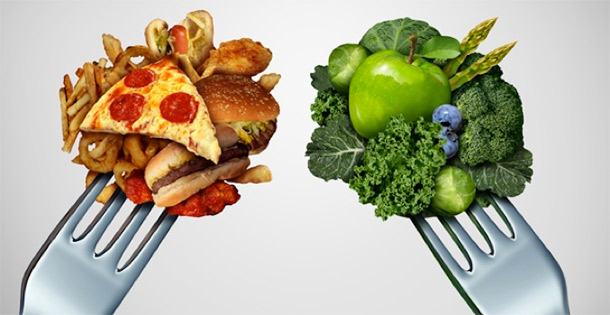We are pleased to bring you this regular column on weight loss by Dr. David Creel, a licensed psychologist, certified clinical exercise physiologist and registered dietitian. He is also credentialed as a certified diabetes educator and the author of A Size That Fits: Lose Weight and Keep it off, One Thought at a Time (NorLightsPress, 2017). See all of David Creel’s articles here.
Do you have a weight loss question for Dr. Creel? Email him at [email protected]. He may answer your question in a future column.
Researchers Rena Wing and James Hill asked, “What do people who succeed at losing weight and keeping it off have in common?” To answer this question, they invited people who’d lost at least 30 pounds and kept if off for a year or more to join the National Weight Control Registry. Over the last 20 years, along with their colleagues and students, they’ve published studies to help us learn from those who succeed. One of those studies is related to a mindset that may help us succeed with long-term weight management.
In that study, Dr. Mary L. Klem provided questionnaires to over 900 people in the registry and assessed how they viewed the effort, attention, and pleasure associated with maintaining a lower weight. On average, the participants kept off about a 60-pound weight loss for almost seven years. They reported it became easier to keep their weight steady as time passed, requiring less effort and attention. And, they said the pleasure of maintaining weight loss did not diminish. Less work and continued satisfaction—who wouldn’t like that result?
This study shows how commitment can lead to habits that make it easier for us to maintain new behavior. These new, healthier behaviors usually require less motivation and attention because, well, they’re habits!
Why Should You Develop New Habits?
When you develop habits with intention (that is, on purpose), and merge these behaviors with the most important aspects of your life, they become part of your identity. Imagine you begin riding a bike to work or walking an extra mile every day. Imagine taking the stairs instead of the elevator, which is too crowded anyway. Visualize having a fresh, colorful salad for lunch on most days. Imagine having an occasional half-cup scoop of your favorite sherbet for dessert instead of a nightly bowl of ice cream with hot fudge sauce. Imagine having your favorite decadent food as a special treat, but not eating it in excess.
Once you and others begin to see these behaviors as part of who you are and what you do, these habits become part of your identity. Just as you might describe yourself as a non-smoker or pet lover, you also describe yourself as a healthy eater or a regular exerciser. Once this happens you begin to forget old unhealthy behavior patterns and the “new you” eventually becomes the “old you.” The new way of viewing yourself becomes part of who you are.
I can’t promise this is always easy. Many overweight people find it hard to see themselves as an exerciser or healthy eater because they don’t look fit. Buying extra-large clothing or looking at yourself in a full-length mirror can trigger negative thinking. Women compare themselves to size 4 fashion models, while guys sometimes look at their favorite athletes and tell themselves, “I’ll never get there. No use trying.” This attitude stands in the way of creating a new identity, and it definitely influences behavior. In fact, it becomes a vicious, self-fulfilling prophecy.
How Do We Define Our Identity? A Story
One of my clients told me about an encounter that shows how appearance, background, and conditions need not define our health identity.
Rob has been overweight for years. He’s a guy who loves football, beer, and a casual lifestyle. He’s single and works with a group of other men who don’t cook or even consider what they eat. As a result, Rob consumes a lot of fast food. In his mind, that’s what guys do, and so it became part of his identity. Other parts of his identity, less obvious to his friends, are his diabetes, which requires more insulin with each pound he gains, and his recent diagnosis of high blood pressure. Rob also has a heart for helping others, whether it’s taking care of a sick family member, building housing in Haiti, or helping a friend move. In a recent visit to my office he told me about an incident that made an impact on his weight loss efforts.
Doc, you won’t believe what happened to me this week. There’s this homeless guy I see almost every day close to my work. He’s maybe 50 or so—heck we’re probably about the same age. Anyway, he has dirty long dreads and he pushes around a shopping cart with some of his personal items. As far as I know he never really panhandles, but for some reason I just feel bad for him. So the other day I saw him on my way to lunch and decided to pick up something for him to eat, too. I was at Hardee’s and after I finished eating, I ordered him a cheeseburger, fries and a Coke. I thought I was doing something nice for the guy, you know? So I drove over to where he hangs out and I rolled down my window and said ‘Hey man, come here, I got you some lunch.’
He walked over to my car and I handed the sack through the window. But instead of taking the food and saying thanks, he just looked at the sack and said, ‘What’d you buy me?’
I said, ‘It’s just a burger and fries. Go ahead, take it.’
Then this guy says, ‘Man, I don’t eat that kind of stuff.’
I was like, ‘You mean, you don’t want it?’
Then he said, ‘Nah man, I got diabetes and my doctor told me that sort of food will kill me. If you want to get me something to eat, go over to McDonald’s and get me a salad.’
So here I was sitting in my car, with a homeless guy refusing the food I bought him because it wasn’t healthy enough. I couldn’t believe it!
Rob went on to tell me this incident made him think about his own behavior. If a homeless person can make good food choices, surely he could too. It also demonstrated that physical appearance and our surroundings don’t need to dictate identity. Rob assumed this man’s dirty clothes and unkempt appearance meant he wasn’t worried about what he ate.
Similarly, overweight people often find it difficult to view themselves as healthy because of their weight or appearance. Remember, a healthy weight results from healthy behaviors. In most cases it won’t lead you to a size four or ripped abs. Healthy people come in different shapes and sizes and I encourage you to let go of “ideal weights.” Although weight is related to health, it doesn’t define it.
Your Identity Is More Than Your Weight
It’s also crucial to accept that our size is only one component of appearance, and appearance is only one small part of who we are. Our intellect, personality, interests, abilities, purpose and pursuits need not be overshadowed by weight. Instead, if our drive for a healthier weight is integrated into other meaningful aspects of our lives, our weight management efforts won’t feel like a project disconnected from who we are. If I view managing my weight as part of becoming a better parent because I can go bike riding with my child, then managing weight takes on new meaning. If faith is a driving force in your life that encourages you to help others, your weight and health choices can either help or hinder your efforts.
Finding time to exercise doesn’t need to take away from what we give to our careers and the people we love. On the contrary, it will help us think more clearly, work more efficiently, manage stress better and probably increase our productivity.
Come back each week for more healthy weight loss advice from Dr. David Creel. Other recent columns:
- The Difference Between Motivation and Desperation
- How Important Is Exercise for Weight Loss?
- Tips for Eating Smart, Part 2
Featured image credit: Shutterstock
Become a Saturday Evening Post member and enjoy unlimited access. Subscribe now



